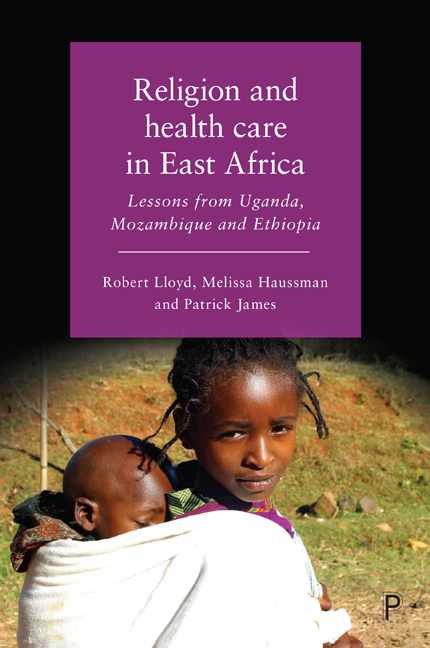5 - Ethiopia
Published online by Cambridge University Press: 27 April 2022
Summary
Overview
This chapter focuses on religion and health in Ethiopia. The two basic questions motivating this study are answered to some degree through the research of this chapter: “What is the role of religion in the Social Determinants of Health?”; and “How is it connected to outcomes?”
Prior to moving into details of this case, it is helpful to provide an overview of what will be discovered along the way. Ethiopia is an ancient and significantly rural state. It did not experience colonization and remains quite poor—a sustained trait, with health care being an ongoing challenge. Over the last several decades, attention naturally concentrated on HIV/AIDS. State-created local organizations that focus on health care have existed for some time. However, they are limited in their reach and effectiveness. Faith-Inspired Institutions add significantly to health care for Ethiopians, who tend to be religious. Modern medicine exists alongside holy water, traditional birth attendants, and other aspects of non-Western treatment. The Consortium of Christian Relief and Development Associations is an umbrella organization that coordinates various faith-based efforts to provide health care. Its role is constructive as a rallying point for health care provided via civil society in Uganda. Women's health, however, stands out as a problem area, as revealed through a review of the Millennium Development Goals (MDGs) in the Ethiopian context. Ethiopia lags behind other states and religious beliefs and even institutions sometimes play a negative role. In an overall sense, religion plays an essential role in the provision and consumption of health for Ethiopia and the story is thus, for the most part, a positive one.
While it stands out as a low-income, developing country, Ethiopia is also an ancient and independent state. Ethiopia is a poor country even by African standards. According to United Nations (UN) data, in 2010 (the most recent year for which information is available), 36.8% of the population lived on less than USD1.25 per day (calculated in terms of purchasing power parity). Economic and political reforms have contributed to a significant drop in this figure, even though the same period saw a major increase in the country's overall population.
- Type
- Chapter
- Information
- Religion and Health Care in East AfricaLessons from Uganda, Mozambique and Ethiopia, pp. 117 - 166Publisher: Bristol University PressPrint publication year: 2019



